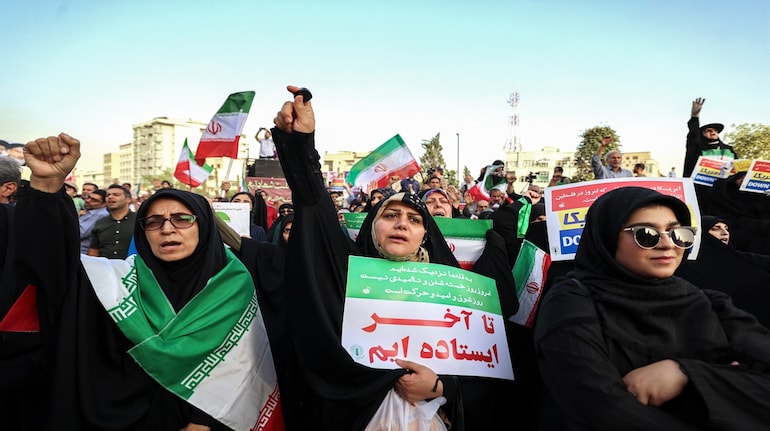



A senior Iranian political advisor recently stirred controversy after suggesting that mystical symbols linked to Israel were found on the streets of Tehran in the aftermath of the 12-day military conflict last month, reigniting debate over the use of supernatural themes in Iran’s political discourse.
Abdollah Ganji, former editor of the Islamic Revolutionary Guard Corps (IRGC)-affiliated Javan daily and now an advisor to the Tehran mayor, claimed in a July 9 post on social media that “pieces of paper with Jewish talismans” were discovered across the capital.
“A strange phenomenon,” remarked Ganji in a July 9 post on microblogging site X.
He has linked this to long-standing claims by Iranian officials that foreign intelligence services use occult sciences and “jinn”, mythical beings in Islamic tradition, for espionage.
The post quickly fueled fresh scrutiny of how metaphysical beliefs are invoked in political narratives, especially when discussing Israel and the West.
Ganji referenced a 2020 speech by Supreme Leader Ayatollah Ali Khamenei, who warned of “enemies from among both jinn and human beings". Notably, this line is omitted from some official transcripts but is frequently cited by hardliners.
Jinn are supernatural entities mentioned in the Quran and believed by some to influence human behavior or serve as agents in unseen conflicts.
In the Iranian state media and religious programming, jinn have occasionally been portrayed as tools of Zionist or Western intelligence operations.
In one such instance, cleric Mehdi Karami, in an October 2024 program, had claimed that “Zionists have a long history of using jinn to carry out missions.”
Earlier in 2023, a Quranic scholar had said on state television that Iran’s intelligence agencies had successfully blocked Israeli infiltration attempts allegedly conducted via jinn.
Ganji’s post has sparked significant pushback over the past week from political moderates and former officials.
Abdollah Ramezanzadeh, a former government spokesperson, slammed the remarks.
Taking to microblogging site X, he suggested that such claims serve to obscure real vulnerabilities. “Linking Jewish symbols and jinn to Israeli attacks distracts from serious security concerns and internal weaknesses,” he wrote.
Nevertheless, when satellite images began circulating online, showing geometric patterns, including Stars of David and triangles, etched into the desert near a missile site in central Iran, things started to get intriguing. While the origin of the symbols remains unknown, Iranian authorities were quick to remove the markings.
Israeli social media accounts widely shared the images, meanwhile, with one Persian-language post attributed to the Mossad mocking the Iranian government, “Consuming drugs and speaking with jinn are not leadership traits.”
While belief in jinn is common across parts of the Islamic world, their use in national security discourse, particularly in a modern state context, has raised eyebrows. Some Iranian clerics see jinn as spiritual beings with potential influence, but others argue such references are symbolic or misused to deflect responsibility.
Discover the latest Business News, Sensex, and Nifty updates. Obtain Personal Finance insights, tax queries, and expert opinions on Moneycontrol or download the Moneycontrol App to stay updated!
Find the best of Al News in one place, specially curated for you every weekend.
Stay on top of the latest tech trends and biggest startup news.